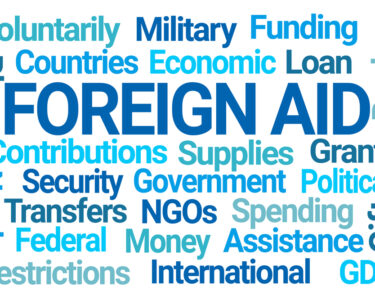
Planning events is one of the most exciting and challenging parts of nonprofit work. Whether it’s a fundraising gala, a community outreach effort, or a volunteer celebration, each one offers a chance to connect people with your mission and strengthen your impact.
However, behind every successful event are lessons learned through experience, problem-solving, and reflection. Understanding these lessons can help you take a more informed approach to nonprofit event planning.
In this guide, we’ll review the most important lessons nonprofit event planners should know before planning their next event. Whether you work in fundraising, marketing, technology, advocacy, or strategy, these lessons will help you plan more meaningful, mission-driven events that create lasting impact.
Lesson 1: Start with Purpose, Not Just Planning
Experienced nonprofit leaders agree that every great event starts with a clear purpose and goals. When the event’s purpose is clear, decision-making becomes easier and more strategic, and your team can stay focused on important tasks at hand. Here’s how to start with purposeful event planning:
- Establish a single, primary objective (e.g., fundraising, awareness) to serve as the guiding principle for every decision.
- Use that objective to define your target audience and determine the specific metrics you will use to measure success.
- Filter every planning choice—from messaging to activities—through your purpose to ensure the event is focused and aligned with your mission.
By using this framework, you can prevent your event from becoming just another item on the calendar. It helps you create experiences that are intentional, impactful, and aligned with your mission.
Lesson 2: Collaboration Makes or Breaks an Event
No successful event happens in isolation. Nonprofit leaders consistently emphasize that collaboration across departments is what turns a good plan into a great experience. Fundraising, marketing, programs, and operations each play a role in shaping an event’s success, and early coordination ensures that all perspectives are included. You can connect them by:
- Bringing key stakeholders together early in the process to set shared goals and timelines.
- Clearly defining roles and responsibilities so everyone knows what they’re accountable for, and keep communication open throughout planning.
- Conducting regular check-ins to help your team stay aligned and catch potential issues before they grow.
Strong collaboration helps create a unified message that resonates with attendees and reflects your organization’s collective effort. When every department works toward the same outcome, your event becomes more cohesive, efficient, and memorable.
Lesson 3: Budgeting Is About Priorities, Not Just Numbers
Seasoned nonprofit professionals know that budgeting isn’t just about balancing costs. It’s about making intentional choices that support your mission. Every dollar you spend should have a clear purpose tied to your event’s goals—which is why budgeting is so essential.
First, identify priority expenses that will have the greatest impact on your audience and outcomes. For example, investing in technology that improves check-in or engagement may provide more long-term value than spending on decorations. During this step, remember to build in a contingency for unexpected costs and keep your budget flexible enough to adapt as plans evolve.
Partnerships and in-kind donations can also stretch your resources further. Local businesses or sponsors are often willing to contribute products, services, or space in exchange for recognition. The more creative you are with how you allocate and supplement your budget, the more you can accomplish without increasing expenses. Be sure to record these donations in your official event budgeting materials.
Lesson 4: Data and Technology Are Your Hidden Allies
Nonprofit leaders have learned that data and technology can turn fundraising event planning from guesswork into strategy. Modern tools make it easier to manage registrations, track engagement, and measure results.
A2Z recommends using purpose-built event management software to streamline logistics. The best tools can automate tasks like ticketing, communications, and attendee tracking, saving valuable staff time and reducing errors. Also, ensure your system can collect the right data: attendance trends, donation conversions, engagement levels, and post-event feedback all reveal how well your event met its goals.
Once the event ends, use your software to report on what worked and what didn’t. Over time, these insights help you improve planning, target the right audiences, and strengthen relationships with attendees.
Lesson 5: Relationships Are the Real ROI
For experienced nonprofit leaders, the true measure of an event’s success isn’t just revenue; it’s the relationships built along the way. Every guest, sponsor, and volunteer represents an opportunity to deepen engagement and strengthen your community. When you focus on relationships as your return on investment, events become catalysts for ongoing connection, advocacy, and support for your mission.
Take time to personalize the experience for attendees. Donors especially appreciate when their contributions are acknowledged in meaningful ways, not just listed in a program. Get inspired by these ideas:
- Host a “mission-first” follow-up session. Instead of a generic thank-you email, invite key supporters to an exclusive virtual call. Use this time to share specific stories and outcomes from the event, demonstrating exactly how their participation made a difference.
- Create personalized impact cards. Move beyond a simple program listing. Send high-value donors a handwritten note with a specific, personal observation about their involvement and connect their contribution directly to a future mission-related goal.
- Implement a “warm welcome” follow-up system. Task board members or leadership with making personal phone calls to key attendees after the event. The call isn’t an “ask”—it’s purely to express gratitude and reinforce personal connections.
After the event, follow up while enthusiasm is still high. Share outcomes, express gratitude, and show how participation made a difference. These small but consistent actions build trust and loyalty over time.
Lesson 7: Celebrate Success and Share the Story
Once the event wraps up, take time to celebrate what went well and recognize the people who made it possible. From volunteers and staff to sponsors and attendees, everyone plays a role in bringing your event to life, and acknowledging their contributions builds morale and loyalty. Host public and private debriefs to show your gratitude while conveying your event’s success.
Sharing your success story is just as important. Highlight key outcomes such as funds raised, community impact, or milestones achieved. Communicate them through your website, email updates, or social media. Transparency not only builds trust with your supporters but also reinforces the value of their involvement.
Finally, document what you learned. Capture insights, challenges, and feedback so future teams can build on your experience. Celebrating and reflecting ensures that every event strengthens your organization’s knowledge, relationships, and ability to create even greater impact next time.
Passing the Torch: Building a Culture of Learning
Every event brings new lessons, no matter how experienced your team is. The most successful nonprofit leaders treat each event as an opportunity to grow.
As you plan your next event, approach it with curiosity and a willingness to adapt. Ask what worked, what could improve, and how you can make a greater impact next time. Over time, this mindset creates a culture of continuous learning within your organization, where every event becomes a stepping stone toward greater purpose, connection, and success.
👇Follow more 👇
👉 bdphone.com
👉 ultractivation.com
👉 trainingreferral.com
👉 shaplafood.com
👉 bangladeshi.help
👉 www.forexdhaka.com
👉 uncommunication.com
👉 ultra-sim.com
👉 forexdhaka.com
👉 ultrafxfund.com
👉 bdphoneonline.com
👉 dailyadvice.us




